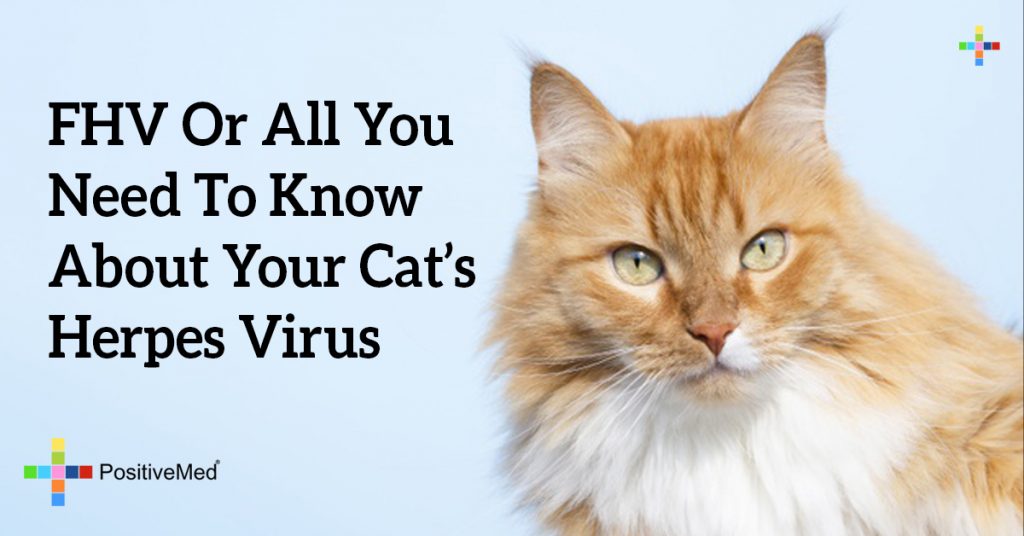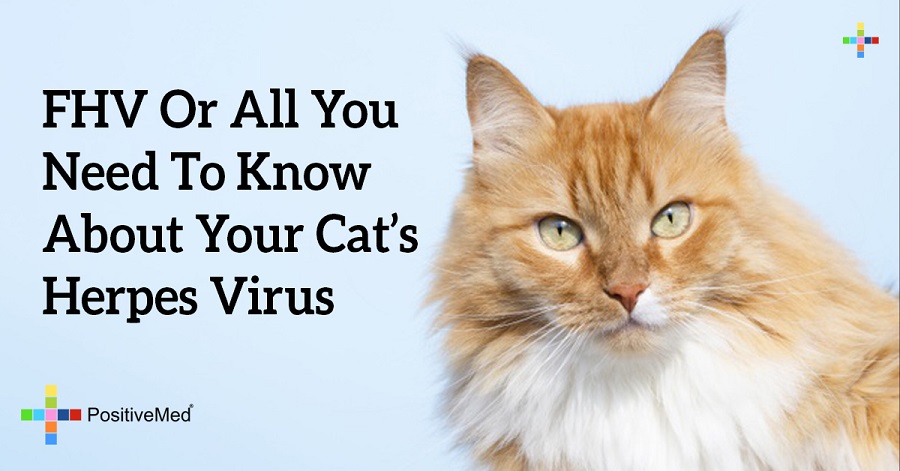
FHV Or All You Need To Know About Your Cat’s Herpes Virus
Dealing with a sick cat can be a frustrating experience. After all, cats can’t talk, so there’s no way for them to tell you what exactly is wrong. If your cat is exhibiting symptoms of feline herpesvirus, it’s up to you to identify the problem and take the necessary steps. The following guide will help you navigate your way through a feline herpesvirus outbreak.

What is Feline Herpesvirus?
Feline Herpesvirus (FHV) is a common virus among cats all over the world. It is highly contagious and targets a cat’s respiratory system, which can cause an acute respiratory infection. Don’t feel bad if your cat has contracted this virus; a large majority of cats come down with FHV at some point in their lives.
What are the Symptoms of FHV?
Aside from causing acute respiratory infections, FHV symptoms include sneezing, conjunctivitis (commonly known as “pink eye”), discharges from the nose and eyes, salivation, fever, coughing, loss of appetite, pharyngitis, and lethargy. In rare occasions, your cat may come down with dermatitis, specifically skin inflammation and ulceration.
These symptoms can last anywhere from a few days to a few weeks.
How Did My Cat Contract FHV?
Cats usually catch FHV from other infected cats by coming into contact with discharge from the sick cat’s eyes, nose and mouth. This can happen when cats share litter boxes, food and water dishes and when they groom one another. Pregnant cats who have the virus can pass it on to their offspring.
It’s possible for a cat who is infected with FHV to become a latent carrier, which means that even though they might never show symptoms, they can cause other cats to become sick. Once a cat is infected, it most likely will carry the virus for the rest of its life.
RELATED ARTICLE: You Probably Have Herpes And You Definitely Don’t Know It. Hidden Signs And Home Remedies For Herpes Treatment
Can I Get It?
Now it’s time for some good news. Humans and dogs can’t catch the virus, so if you noticed your cat sneezing and coughing more than usual, you can rest assured that you and your pooch will be okay.
How Can I Treat FHV Naturally?
1. Minimize your cat’s stress levels. Stress can weaken your cat’s immune system and cause its symptoms to become even worse. In this regard, tender loving care is a necessary first step.
2. L-Lysine. L-lysine is an amino acid that can be used to treat your cat’s FHV flare-ups. FHV uses the amino acid arginine to replicate itself. By adding 500 mg of L-Lysine powder to your cat’s food, you can effectively trick the virus into destroying itself by using the L-lysine instead of arginine. It’s like creating your own little Trojan Horse but with more fur.
3. Cat’s Claw. The aptly named cat’s claw is a herbal remedy known for its ability to prevent and control the herpes virus.
4. Turmeric. Turmeric is a popular anti-inflammatory herb that can reduce the severity of acute respiratory infections.
Hopefully, you found this guide helpful. Remember that feline herpesvirus is incredibly common among cats, and there’s no need to panic. Apply the above remedies, and give your cat an extra dose of love and attention. Before you know it, your feline companion will be back to purring, shredding curtains and seeking your undivided attention.






